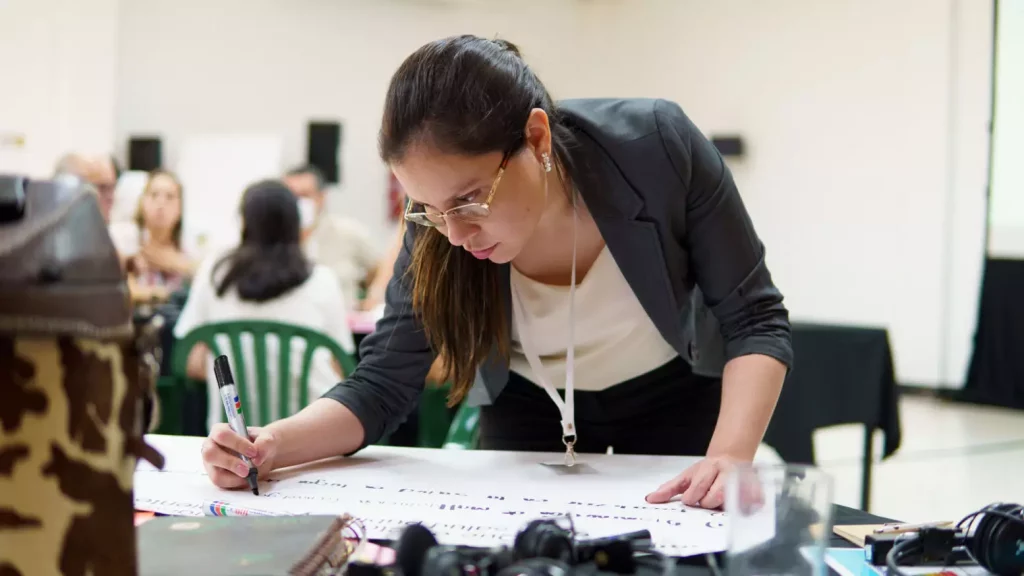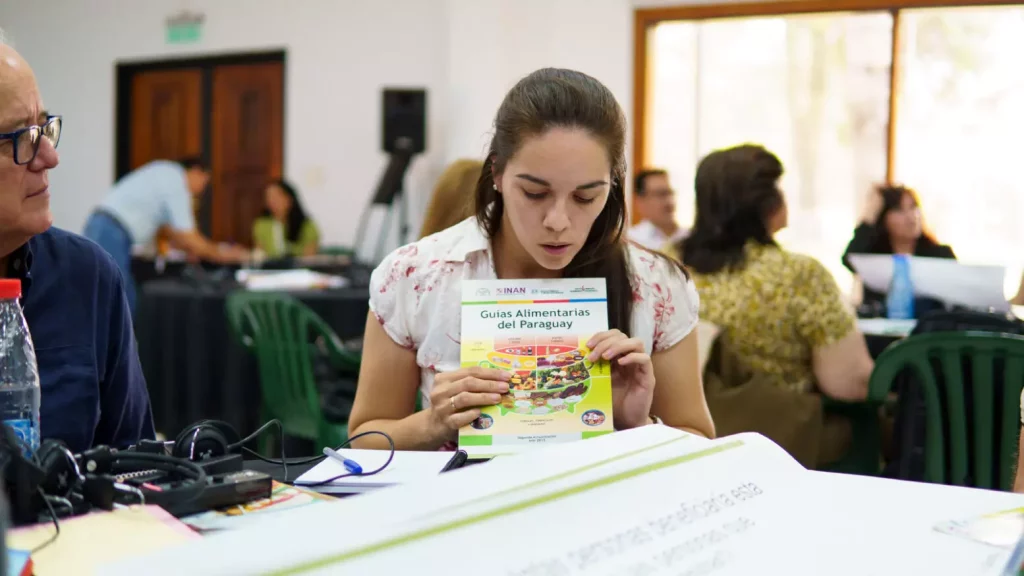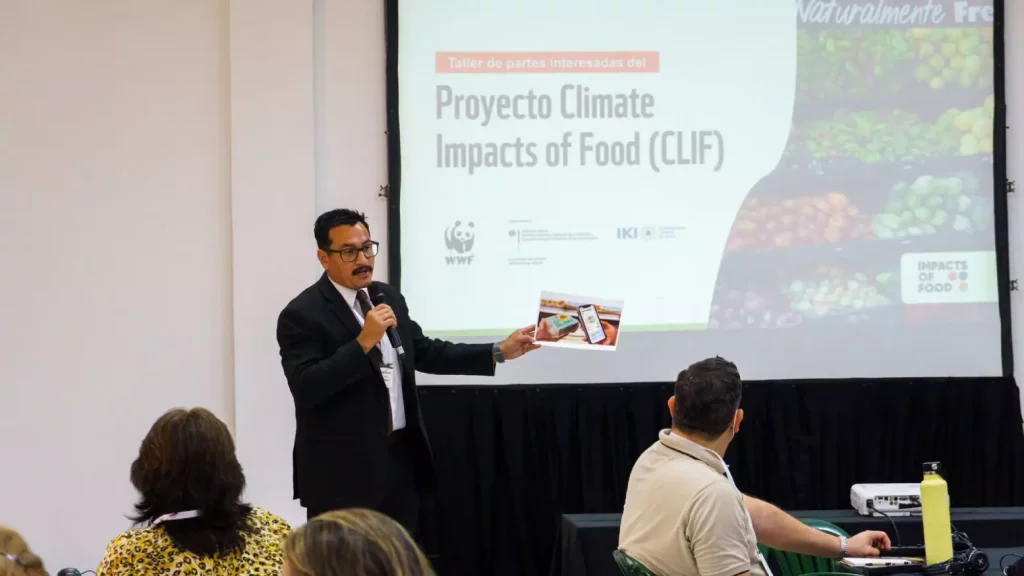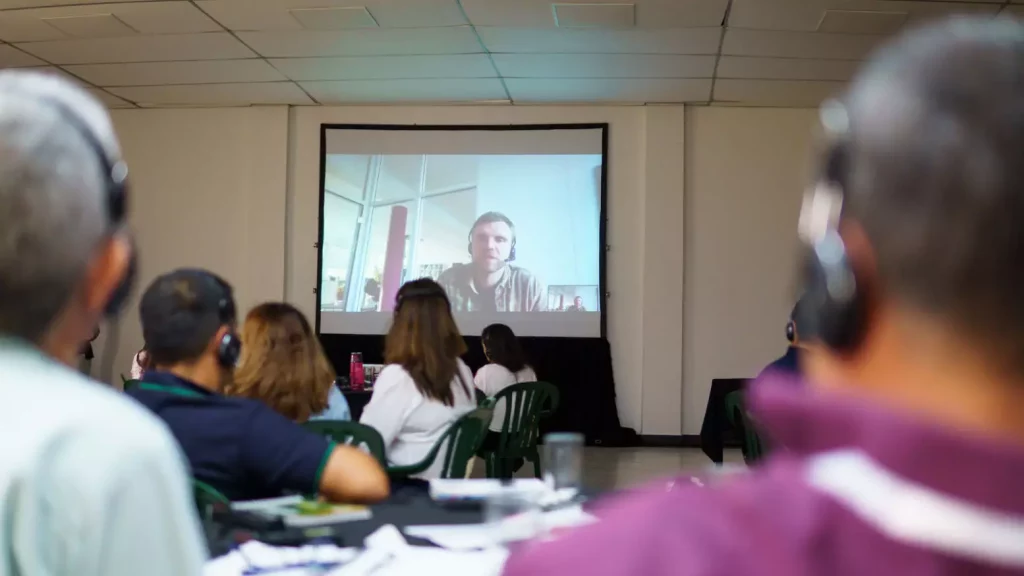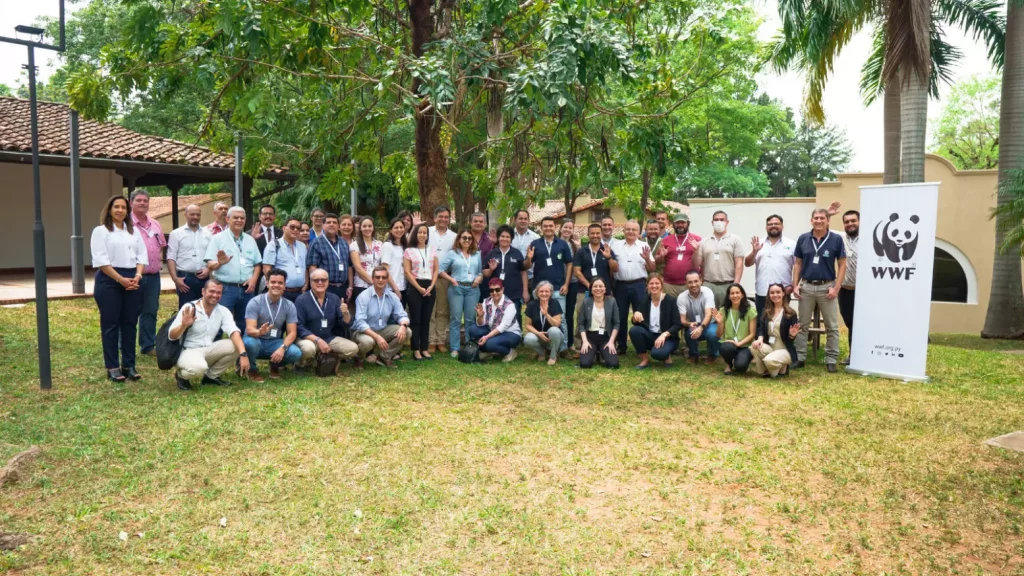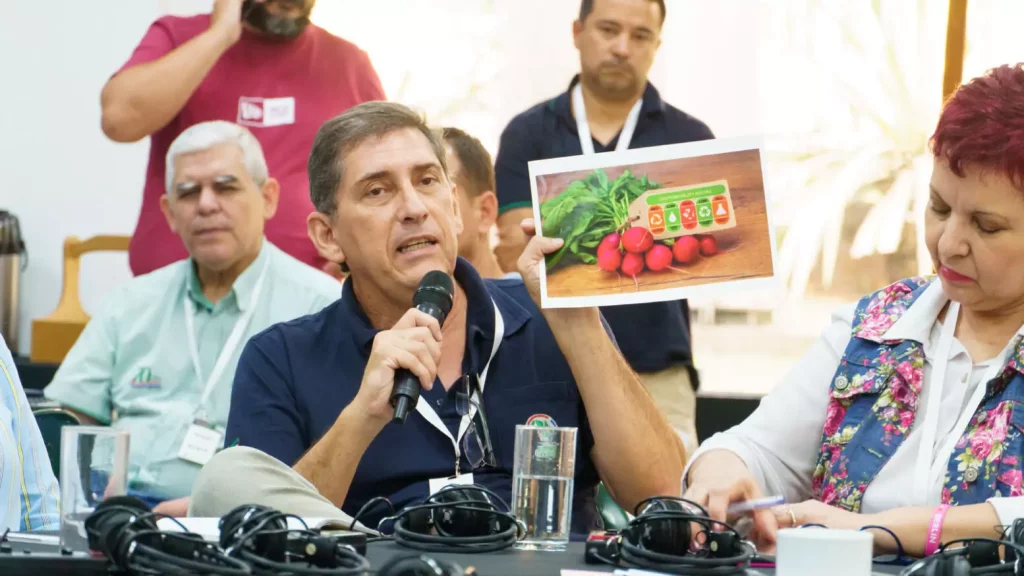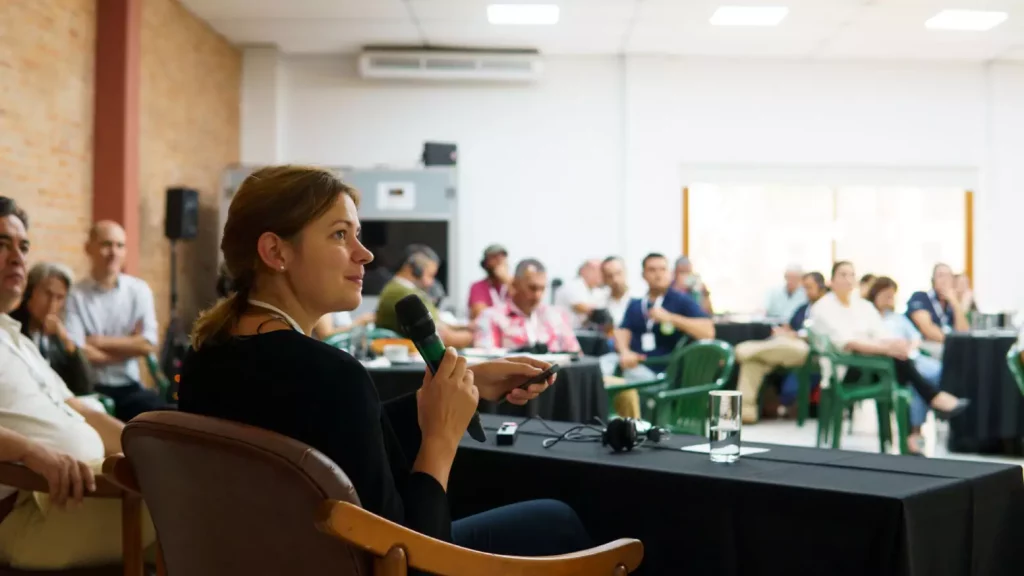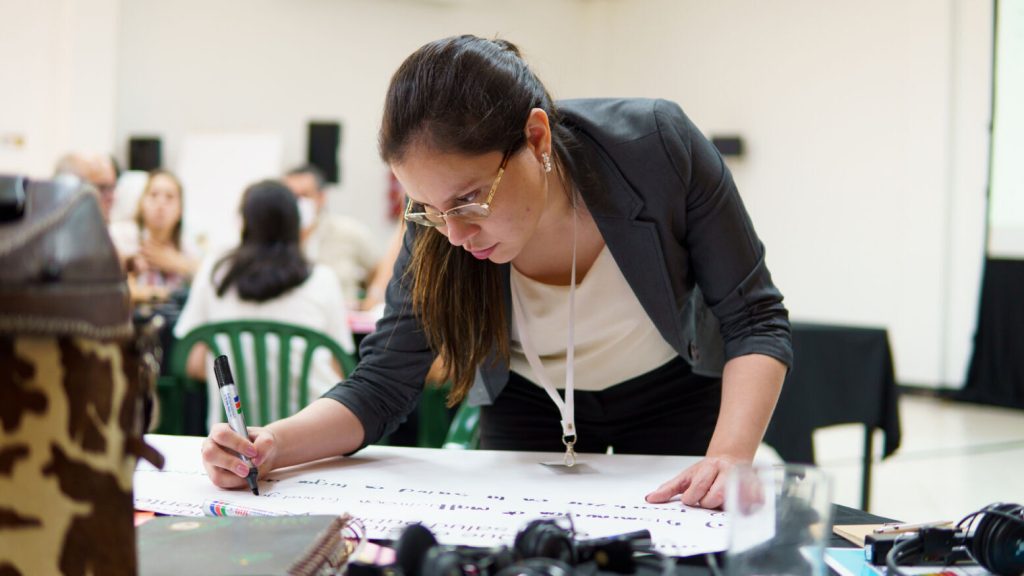First round of CLIF stakeholder workshops completed
Asunción (PY): The last stakeholder workshop of the year took place in Asunción on 23 and 24 October 2023. This marks the end of the first round of workshops as part of the CLIF project. Around 55 participants from various sectors, including representatives from ministries, public institutions, food retailers, civil society, farms and cooperatives, gathered over a period of two days.
The participants were first given a comprehensive introduction to the objectives of the project and the specific goals for Paraguay. Emphasis was placed on the environmental impact of four key raw materials in Paraguay – meat, soya, yerba mate and sugar cane – in relation to the project. This was followed by an introduction to the political study carried out as part of the project on possible measures and policies for a more sustainable diet. The participants then had the opportunity to discuss these measures in terms of their feasibility and their social and economic impact in the region.
Challenges for a food system transformation in Paraguay
Many participants identified the scarcity of resources and lack of coordination between institutions as one of the greatest challenges as well as the lack of systematization and publicly available information. Another important aspect is the present situation of food security and food safety in Paraguay. Given these challenges, there is a growing need to increase consumer awareness of sustainable products in Paraguay. For many people, terms such as “agroecological” or “sustainable” are still very complex terms to understand and the most important purchasing aspect remains the price.
Insight into international experiences
However, the workshop provided an opportunity to share experiences with international colleagues from the other project regions. The team from South Africa provided insights into their longstanding experience in consumer behavior and presented, among other things, the WWF’s Sustainable Seafood Initiative (SASSI), which was developed in South Africa to improve access to information on sustainable fish production and works successfully with retailers and consumers.
Navigating Consumer Behavior: Shaping Sustainable Choices with Impact of Food
In the further course of the workshop, the future functions of the CLIF tool were discussed. A very crucial aspect during the workshop discussions was the question of what motivates consumers to translate the knowledge they have gained into concrete behavioral changes. It turns out that food labelling, sustainability aspects and food quality characteristics are not yet deeply anchored in the consciousness of consumers in Paraguay. In this context, the CLIF tool can make a significant contribution by communicating aspects of sustainability to consumers, particularly regarding sustainable consumption. However, it is essential that the tool is designed to be easily accessible, understandable and useful to the Paraguayan consumer to avoid potential confusion.
Overall, this workshop laid a good foundation for further cooperation on the topic of nutrition and sustainable consumption in Paraguay. It was one of the first workshops of its kind on this topic, with many motivated participants, and we are very much looking forward to future discussions!
